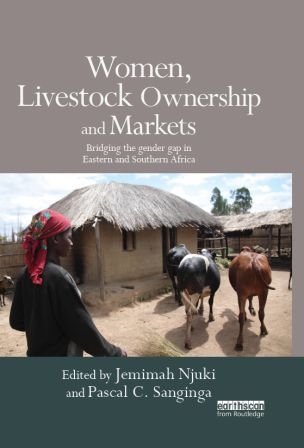Resource information
Providing empirical evidence from Kenya, Tanzania and Mozambique, and from different production systems, this book illustrates that livestock is an important asset to women and their participation in livestock and livestock product markets. It explores the issues of intra-household income management and economic benefits of livestock markets to women, focusing on how the types of markets and products, and women’s participation in markets, influence their access to livestock income.
The book further analyzes the role of livestock ownership, especially by women, in influencing household food security by increasing household dietary diversity and food adequacy. Additional issues addressed include access to resources, information, and financial services to enable women to more effectively participate in livestock production and marketing. Factors that influence this access are also examined.
Practical strategies for increasing women’s market participation and access to information and services are discussed. The book ends with recommendations on how to mainstream gender in livestock research and development if livestock ownership is to serve as a pathway out of poverty, especially for women.
The Editors:
Jemimah Njuki is program director for a Women and Agriculture Program for CARE USA. She previously led the Gender, Poverty and Impact group at the International Livestock Research Institute.
Pascal C. Sanginga is senior program specialist for Agriculture and Environment at the International Development Research Centre’s Regional Office for Sub-Saharan Africa, Nairobi, Kenya.


